Quantum computing represents a paradigm shift in the world of technology, promising to revolutionize various industries, particularly artificial intelligence (AI). Unlike classical computers that use bits as the smallest unit of data (represented as 0s or 1s), quantum computers use quantum bits or qubits. Qubits can represent and store data as 0s, 1s, or both simultaneously, thanks to the principles of quantum superposition and entanglement. This fundamental difference allows quantum computers to process information at unprecedented speeds and solve complex problems that are currently intractable for classical computers.
Recent Developments in Quantum Computing

In recent years, there have been significant advancements in quantum computing. Companies like IBM, Google, and Honeywell have made remarkable strides, each showcasing their quantum processors’ capabilities. In 2019, Google announced that its quantum processor, Sycamore, achieved quantum supremacy by solving a problem in 200 seconds that would take the world’s most powerful supercomputers 10,000 years to solve. This milestone, though contested, marked a significant step forward in the field.
IBM has also been at the forefront with its IBM Quantum System One, designed for commercial use. IBM’s roadmap includes developing more powerful quantum processors and creating a robust quantum ecosystem. Additionally, Honeywell’s quantum computer has demonstrated high-fidelity quantum operations, contributing to the competitive race in quantum technology.
Potential Impact on AI
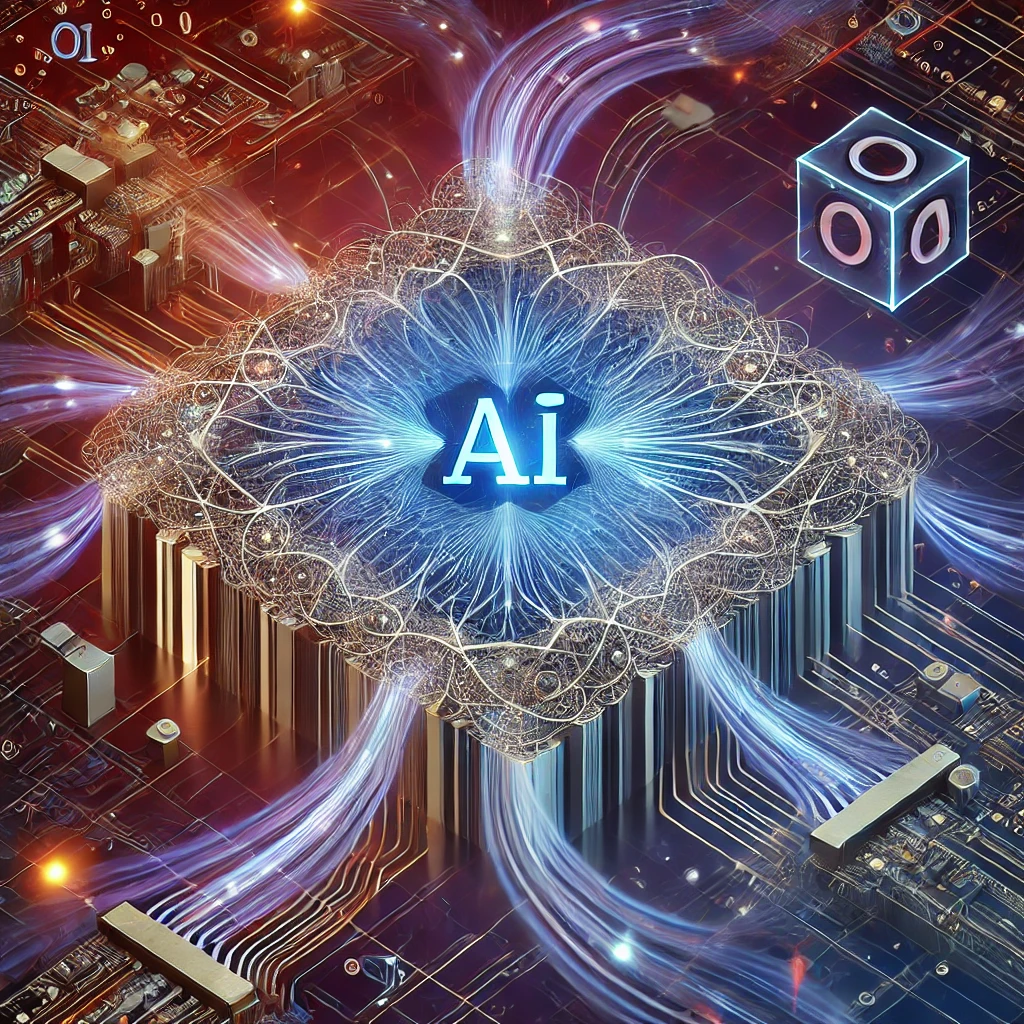
Quantum computing holds immense potential to transform AI by enhancing computational power, enabling the development of more sophisticated algorithms, and improving data processing capabilities. Here are several ways quantum computing could impact AI:
- Optimization Problems: Quantum computers excel at solving optimization problems, which are prevalent in AI applications. For instance, training deep learning models involves optimizing a loss function over a high-dimensional parameter space. Quantum algorithms can potentially perform these optimizations more efficiently than classical methods, leading to faster and more accurate AI models.
- Enhanced Machine Learning: Quantum machine learning (QML) is an emerging field that combines quantum computing with machine learning techniques. Quantum algorithms like the Quantum Approximate Optimization Algorithm (QAOA) and the Variational Quantum Eigensolver (VQE) are being explored for machine learning tasks. These algorithms could accelerate tasks such as clustering, classification, and regression, making AI systems more powerful and efficient.
- Big Data Processing: AI relies heavily on big data for training models. Quantum computers can handle and process large datasets more effectively due to their inherent parallelism. This capability could significantly reduce the time required for data preprocessing and analysis, thereby speeding up the AI development cycle.
- Quantum Neural Networks: Quantum computing could give rise to quantum neural networks (QNNs), which leverage qubits and quantum gates to perform computations. QNNs have the potential to outperform classical neural networks in certain tasks, offering new ways to model complex systems and achieve better generalization.
- Security and Cryptography: Quantum computing poses both challenges and opportunities for AI security. While quantum computers could break classical cryptographic protocols, they could also enable the development of quantum-resistant algorithms and quantum encryption techniques, enhancing the security of AI systems.
Practical Applications in Everyday Life
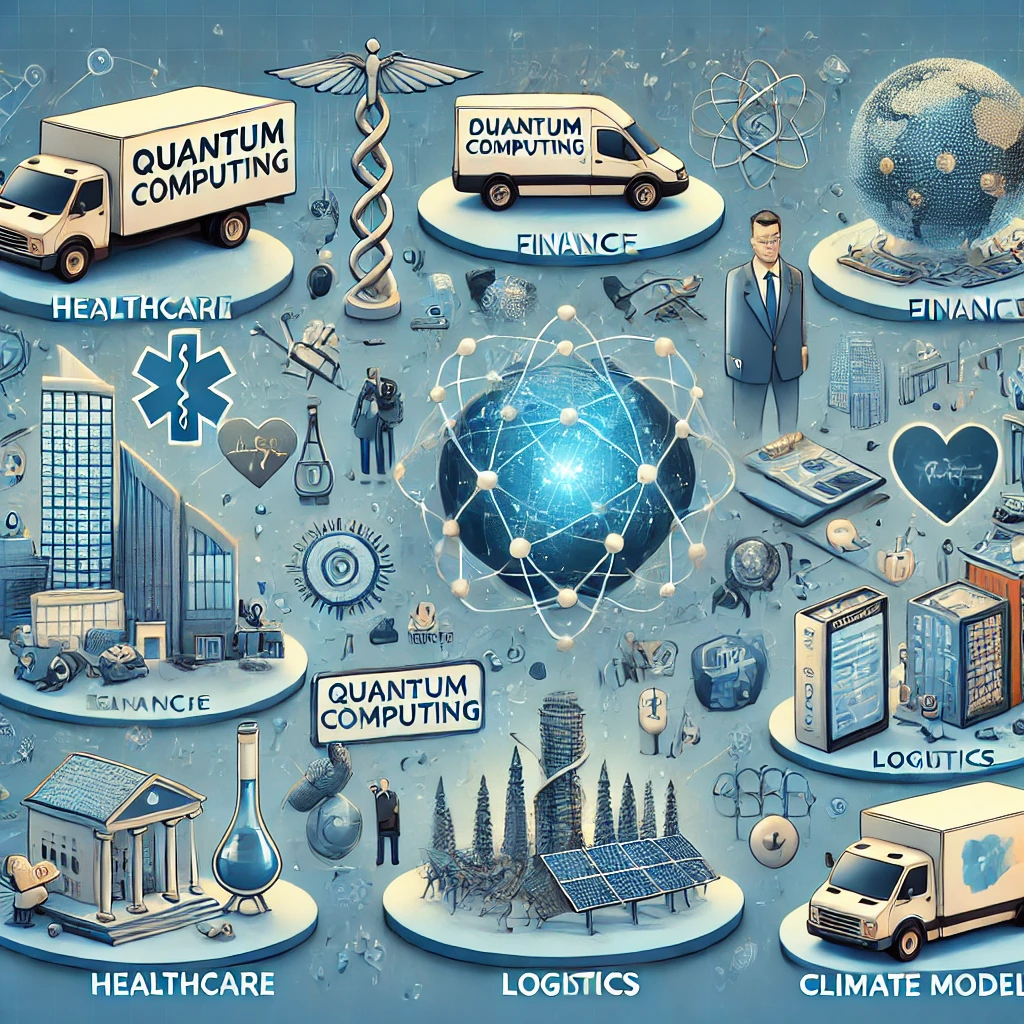
Beyond transforming AI, quantum computing has the potential to revolutionize various aspects of human life, making everyday tasks more efficient and practical. Here are some future applications:
- Healthcare and Drug Discovery: Quantum computing can accelerate the discovery of new drugs and medical treatments by simulating complex molecular structures and interactions more accurately than classical computers. This could lead to faster development of cures and personalized medicine.
- Financial Services: In finance, quantum computers can optimize portfolio management, risk assessment, and fraud detection. They can process vast amounts of financial data in real-time, leading to more accurate predictions and better investment strategies.
- Logistics and Supply Chain Management: Quantum algorithms can optimize logistics and supply chain operations by finding the most efficient routes and schedules, reducing costs and improving delivery times. This can enhance the efficiency of global trade and transportation networks.
- Climate Modeling and Environmental Science: Quantum computing can improve climate models by simulating atmospheric and oceanic processes with higher precision. This can help in predicting weather patterns, understanding climate change, and developing strategies to mitigate its impact.
- Energy Management: Quantum computers can optimize energy distribution and grid management, leading to more efficient use of resources. They can also aid in the development of new materials for batteries and renewable energy sources.
- Cryptography and Data Security: Quantum computing can revolutionize cryptography by creating unbreakable encryption methods. This can enhance data security in various sectors, including finance, healthcare, and government.
Challenges and Future Directions
Despite the promising potential, several challenges remain in harnessing quantum computing for AI and practical applications. Quantum computers are currently in the early stages of development, and building stable, error-free qubits is a significant hurdle. Quantum decoherence and error rates need to be addressed to realize practical quantum computing applications.
Moreover, developing quantum algorithms that can outperform classical ones in practical scenarios is an ongoing area of research. Researchers are actively working on creating quantum software and tools that can bridge the gap between quantum hardware and various applications.
Looking ahead, the integration of quantum computing with AI and practical applications could lead to breakthroughs in various fields, including drug discovery, materials science, and financial modeling. Governments and private enterprises are investing heavily in quantum research, recognizing its potential to drive innovation and economic growth.
In conclusion, quantum computing stands poised to become the next frontier in technology, with the potential to revolutionize AI and make everyday tasks more efficient and practical. As quantum hardware and algorithms continue to advance, we can expect to see significant improvements in AI capabilities and the way we live, leading to smarter, faster, and more efficient systems. The synergy between quantum computing, AI, and practical applications promises to unlock new possibilities and reshape the technological landscape in the coming years.

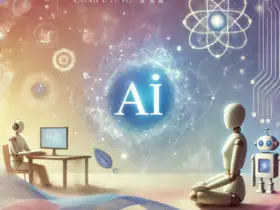


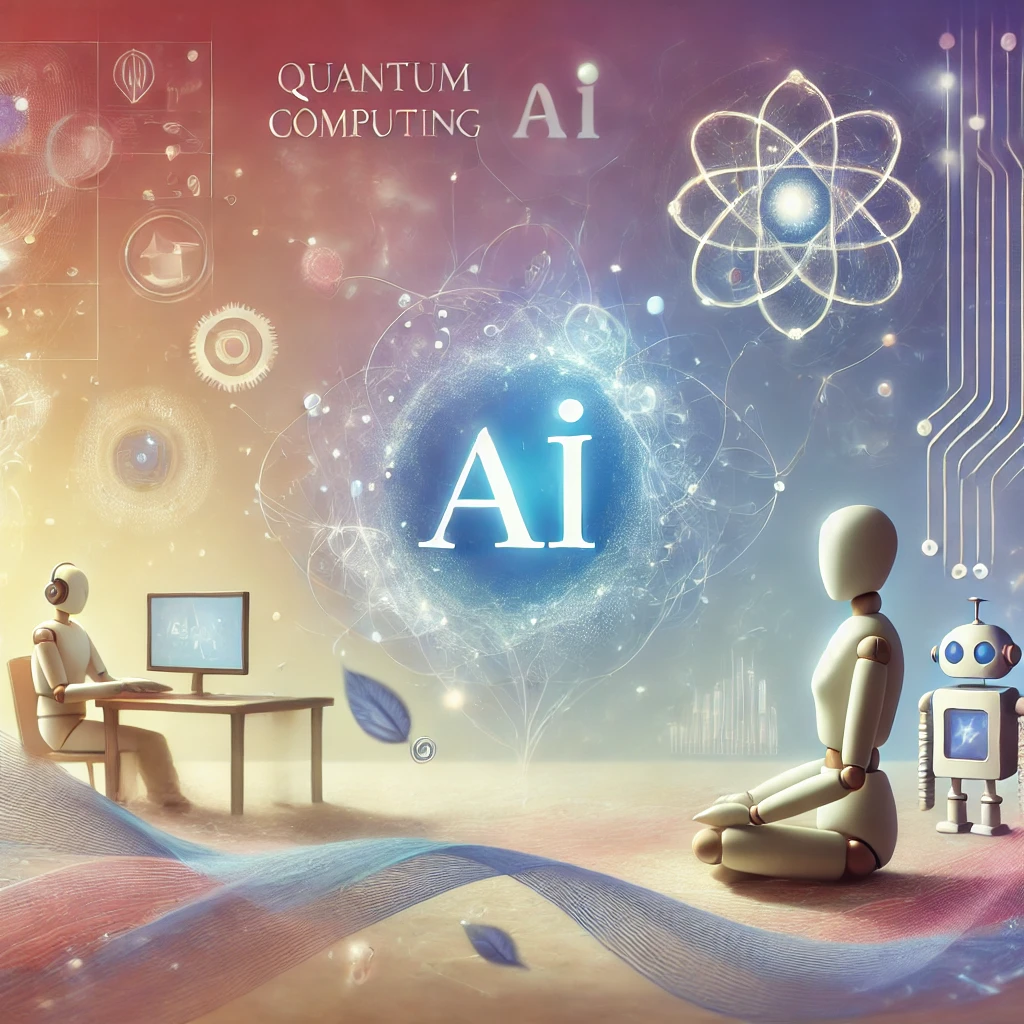

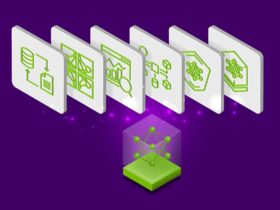
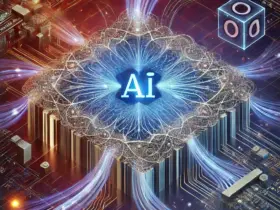




Leave a Reply